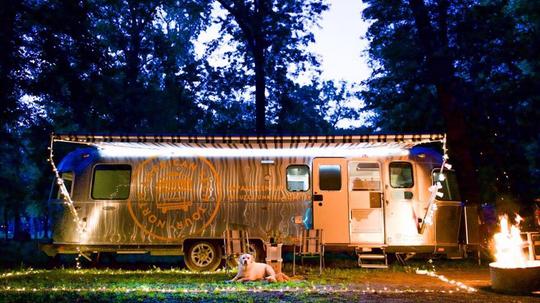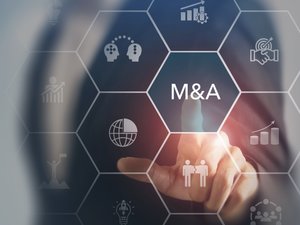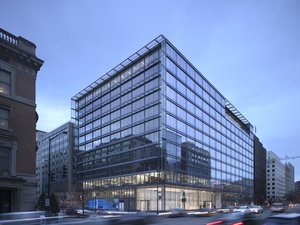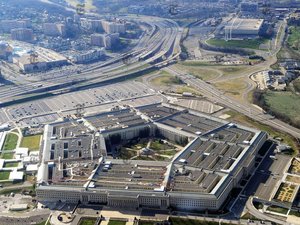
In 2017, it almost seems like a rite of passage for investors and entrepreneurs to go on a tour of the United States. Look at Mark Zuckerberg’s “listening tour” of the country or Steve Case’s “Rise of the Rest” seemingly never-ending tour.
But the D.C. area has its own wandering entrepreneur and investor, one who may have been absent from the narrative in the last few years: Paul Singh.
Yes, you’ve seen Singh’s name before. In 2015, Singh had a roller coaster ride as both an entrepreneur and investor. His accelerator Disruption Corp promised to create a platform that would use data to predict which startups would actually be profitable. But it got acquired by 1776 the literal day it was about to run out of cash, DC Inno reported. Then in 2016, the tech entrepreneur decided to go into co-working—because, of course. The Brickyard is meant to exist in spaces outside of major technology hubs. Its first location opened in January 2016 in Ashburn, Va. During the wild ride of career transitions and new professional beginnings, Singh found himself in the midst of a heartbreaking divorce.
One day, seemingly out of nowhere, Singh decided he would road trip across the United States to talk with entrepreneurs outside of the major tech hubs. In a move that read like a mid-life crisis out of a movie script, he bought an Airstream trailer and moved into it with his new partner. Soon, he realized it was cheaper to keep the Airstream moving from place to place, rather than park it full-time on a campground near D.C.
Singh’s so-called “North American Tech Tour” traveled 26,141 miles and visited 42 cities in 2016.
Today, he’s still going.
'The trailer has become the great equalizer'
In December 2015, Singh told his partner, Dana Duncan, he had a surprise for her. That day, instead of milling around D.C. and doing the usual, they would take a random day trip to New York City. Duncan, always a romantic, hopped in the car without hesitation. "It was the weekend before Christmas, and it was raining and he comes over to me and says 'Do you want to go to New York today,'" Duncan said. "I thought he was being super romantic. I thought we were going ice skating or something."
Duncan recalls the trip while the three of us sit in Commissary in Logan Circle: "As we're almost there, he just takes a hard right into New Jersey."
What's so romantic about New Jersey? Well, Singh knew of something a bit unconventional: an Airstream. Singh knew of a dealership in Jersey that sold one and asked Duncan if she would be OK with them making a quick pit stop to check it out.
He didn't tell me, and we had to spend the night that night in a parking lot in Lakewood, New Jersey.
"I go outside and I call my mom, and as I look around the corner I see a sold sticker on [the Airstream]," Duncan said. "He didn't tell me, and we had to spend the night that night in a parking lot in Lakewood, New Jersey. I had no clothes, no food. We had nothing." They didn't make it to New York City.
That's how it all began: the tour, the new investment strategy and Singh's new philosophy that work-life balance just doesn't exist. "For the first 35 years of my life, I tried to find that balance and now it's really about integrating it," Singh said.
He put out a call from his blog readership to see which cities would be down to meet him first. Singh's plan was to host weeklong events in each city and town he visited—mostly aimed at hearing from entrepreneurs, the ecosystem and so on.
The demand was overwhelming. Currently, they receive 50-60 requests each week from different areas to come visit. Ultimately, Pittsburgh became the first stop.
"Now we have a process, but at the beginning, it was like 'Oh jeez, where are we going to park? How are we going to make sure that we stay on schedule?" Singh said. "There were a million questions about how we were going to keep the flow going."
Pittsburgh was difficult. It was before they created their 200-item to-do list of things to do before a trip.
"At the beginning, we scheduled everything to be work-related, so office hours and panels and key notes," Singh said. "By halfway through last year, we were like let's make sure there's more fun planned in." One example is the one-on-one office hours the duo hosted on the elevator in the arch in St. Louis, Missouri. Companies literally had to elevator pitch their startup to Results Junkies.
In Lubbock, Texas, one of the duo's most recent trip's, they pulled up in front of an investor event. Founders had pick-up trucks and all and the investors pulled up in sports cars. Basically, everyone filed into their set stereotypes. But Singh said that wasn't the case for him and Duncan when they pulled up with the Airstream.
"The trailer has become the great equalizer," Singh said. "When you go to some events, the investors sit on that side and the entrepreneurs on that side. But when you're hanging out at the trailer, everyone is an equal."

'Not just investors in a fancy office'
Results Junkies, the venture firm run by Singh and Duncan, looks for the following when they go to a new city: a co-working space or coding school presence, other investor interest and the size of the town. Ideally, the city or town has 250,000 people or fewer. "We try to say yes wherever we can," Singh said. "We're getting better."
Singh has a problem with the rhetoric surrounding innovation in cities: Officials are too focused on bringing entrepreneurs and investors to them and recruiting the next Facebook to move in and call the city its home. "Everybody used to say 'How do you get investors to come here?'" Singh said. "But that's not what happened. It wasn't that the bigger VCs came to these cities, it was that micro VCs popped up."
At the end of the day, it's the founders that generate the returns for the investors, not the investors.
So the idea of going to the founders with great ideas is super important to him — in case you couldn't tell. Singh believes that as companies become cheaper to start across the country, they have less incentive to go to coastal investors to pitch for funding until they need large amounts.
"Now, as capital becomes more commoditized, investors are forced to start thinking of themselves as companies that happen to be investors, not just investors in a fancy office in an Ivory Tower," Singh said. "At the end of the day, it's the founders that generate the returns for the investors, not the investors."
Even for Singh to invest in another investor's fund, he has one golden rule: investors have to be traveling more than 50 percent of the time. "Venture capital is kind of funny because as an industry we say 'Hey, you guys go do something and we're going to keep doing the same thing for 50 years.'"
In each town he visits, Singh says he finds at least one new idea to invest in—whether it's Wichita or Boise. They look for founders who have all of the core competencies already in place, at least one customer, and other characteristics that Singh says hasn't really changed in his investment strategy.
"What has really changed is the coaching we have to give them to get them to talk like their peers everywhere else," Singh said.
That's because, he says, the tech world is littered with jargon that people outside of Silicon Valley might not get. But that all comes along with the territory of the tour, Singh said. When Results Junkies invests in a startup, they tell their founders that they'll stick to the Silicon Valley valuations, but the companies need to work for Silicon Valley returns, no matter where they are.
"Just because you're in Albuquerque or Tulsa or East Lansing, Michigan, you don't get a pass," Singh said. "We don't have a quota, but in every city we go to, there's almost always one company to invest in."

'We were trying to build the American Dream'
In 2016, Duncan and Singh traveled so much that they stopped getting invites to friends' parties. They all just assumed that the pair didn't live in D.C. anymore because, honestly, it was just hard to keep up with their travel schedule. One week, they were in Tulsa, Oklahoma. The next, Albuquerque, New Mexico.
In 2017, they're trying to be more conscious about their travel plans. The goal is to make sure they spend every other week in D.C., hanging out in their apartment on U Street and with friends at local bars.
Yet, it's easy for them to get caught up in the joys of traveling. The Airstream holds enough water for about 7-to-10 days, they generate their own solar power and the Airstream has been decorated to just feel like a home, instead of like the typical, rundown trailers you see in movies. "We joke that our apartment in D.C. looks the same. We have two TVs in the trailer and one at home," Singh said.
Duncan says the tour has brought them closer together. "All my girlfriends say 'OK, what is happening? Are you two ready to kill each other?'" Duncan said. "But I tell people that if you can build a company together, and you can live in a trailer together, you can do anything. That we have proven."
That's a big reason why Singh doesn't really think there's such a thing as work-life balance. It forces them to spend more time outside: they get somewhere, they put the awning and chairs out, and work outside. The two visit National Parks and different state landmarks they've always wanted to see.
Duncan's 2017 travel goal is to visit the rest of the lower 48 states she hasn't seen yet and to visit all of the National Parks. It might seem superficial, but before last year, Duncan had only seen bits of Virginia, D.C. and Tennessee. Now, she's crossed 42 states off her list. "We were trying to build the American Dream—go to school, get a job, work for the same company for forever, buy a big house, have kids—and we just started collecting a lot of things," Duncan said. "It was almost like we needed to get rid of a lot."
Singh has a list of big goals for the year: He wants to see more people join them on their tours, he wants to invest in 35-50 more venture companies at the bare minimum, and he wants to get to know the intracity networks in the places they visit.
"What more and more people need to realize is being in a city like Albuquerque doesn't put you in a worst starting position. Being in a place like Reston, Virginia, doesn't put you in a worst starting place," Singh said.
"Nobody cares anymore."
Images courtesy of Paul Singh and Dana Duncan/Results Junkies




